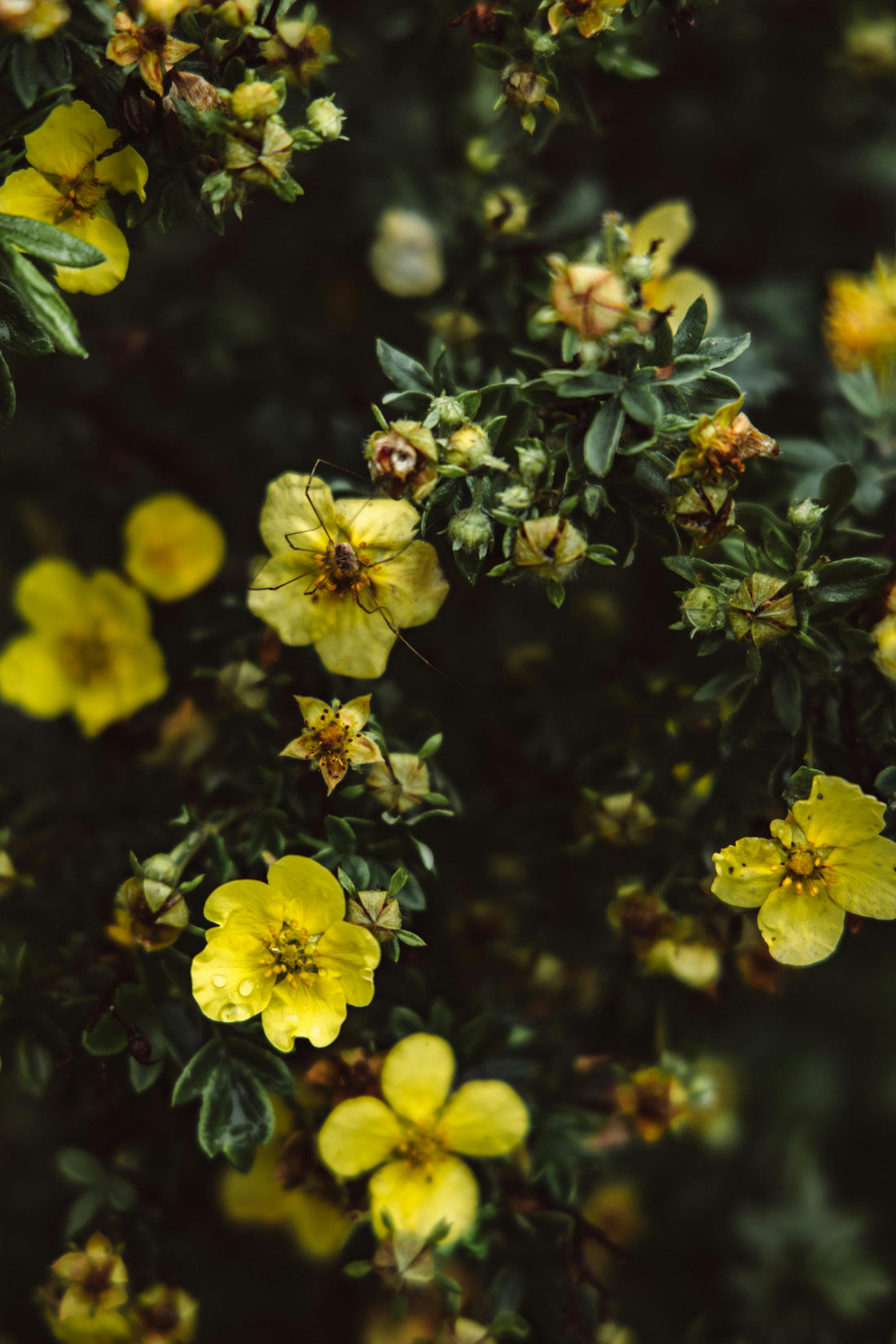
Can You Smoke Mullein Leaf?
Share
Yes! You Can Smoke Mullein
In today's hectic world, where the buzz of stress is omnipresent and smoking traditional tobacco has fallen out of favour, a traditional smoking practice grounded in ancient rituals has resurged. This is the practice of smoking herbal alternatives, with mullein leaf emerging as a frontrunner for its myriad benefits.
Smoking mullein leaf provides seemingly limitless possibilities as an ingredient in herbal smoking blends. This guide delves into the appeal of mullein smoking, examining its potential advantages while weighing the necessary cautions embraced by those seeking herbs that can be smoked.
Understanding Mullein
To fully appreciate the act of smoking mullein leaf, it is vital to understand this herb's nature. Mullein, often referred to as Verbascum Thapsus or Verbascum spp., boasts a history of use as a traditional remedy, characterized by its lofty, yellow-spiked flowers and broad, woolly leaves. Usually, mullein leaf is the part of the plant used for smoking. When we refer to smoking mullein or using it as an ingredient in herbal smoking blends, we are referring to mullein leaf.
Botanical Background of Mullein
With a heritage that spans cultures and continents, mullein has long been embraced for its lung soothing benefits. Flourishing under the sun's radiance and adapting to various soils, mullein has been a traditional remedy for generations.
Mullein's Historical Usage in Natural Healing
Stretching back through time, mullein has been widely harnessed for medicinal purposes. Its traditional herbal applications range from soothing skin conditions to defending against respiratory ailments such as coughs and irritation from wildfire smoke. Herbalists have long lauded it for its capacity to alleviate a variety of common bodily irritations.
Key Constituents of Mullein and Their Impact as a Smoke
Mullein leaves contain an abundance of compounds, such as saponins, flavonoids, and mucilage, that contribute to its therapeutic actions. These elements are known for their expectorant and demulcent effects, giving mullein its benefits as a respiratory soother.
The Habit of Smoking Mullein
The practice of smoking mullein leaf, although less common than some other herbs, is experiencing a revival. Let's venture into how and why mullein smoke draws the attention of wellness enthusiasts seeking inhalable respite.
Preparing Mullein for Smoking
Mullein leaves must be carefully harvested and dried before they can be smoked. The foliage is picked, then slowly dried to retain its beneficial properties, concentrating the active components, rendering them ideal for a smoking medium.
Variations in How to Smoke Mullein (Dried Leaves and Blends)
While some smoke mullein on its own to capitalize on its lung soothing effects, most people blend it with other herbs to produce more specific effects (relaxing, stimulating, etc.). When smoked solo, mullein is gentle and mild tasting. It does not have psychoactive effects. Mullein leaf is a good candidate to combine with other herbs in smoking blends because it can help smooth herbs with a harsher smoke.
Ways to Smoke Mullein Leaf (Pipes, Herbal Cigarettes, Vaporizers)
Mullein leaves can be imbibed similarly to tobacco—through pipes that provide a traditional touch, rolled into herbal cigarettes, or even using vaporizers made for dry herbs, which allow users to enjoy mullein’s properties without the abrasiveness of smoke.
Potential Advantages of Smoking Mullein Leaf
Respiratory System Benefits – Helping Soothe Throat and Lung Discomfort
The expectorant action of mullein contributes to its popularity in herbal respiratory wellness, naturally aiding those seeking reprieve from throat and lung irritations.
Natural Mucilage – Promoting Overall Respiratory Health
Mullein's mucilage content is praised for enveloping and protecting mucous membranes, leading to less irritation, and improving respiratory health.
Smoking Transition Aid – Ingredient in Herbal Blends
Used on its own or within herbal mixtures, mullein can act as an alternative for those reducing their intake of tobacco or cannabis, offering a smoother smoking experience without nicotine's addictive properties.
Weighing the Pros And Cons of Mullein Leaf Smoking
Here are the pros and cons to consider when deciding to smoke mullein leaf.
Pros of Smoking Mullein Leaf
- Natural Respiratory Soother: Known for its ability to calm the respiratory system, mullein smoking can impart a sensation of relief, helping to ease coughing and promoting balance after a demanding day.
- Aids in Respiratory Cleansing: Given its mucilage and expectorant qualities, smoking mullein before bed, or throughout the day may offer individuals a path to cleaner breathing, benefiting those with minor respiratory issues.
- Nicotine-Free: An absence of addictive substances such as nicotine renders mullein leaf an appealing, non-addictive choice for those avoiding tobacco cigarettes. Smoking mullein leaf does not produce any psychoactive effect.
Cons of Smoking Mullein Leaf
- Health Concerns of Smoke Inhalation: Smoking any plant material, mullein included, presents a risk to the lungs and respiratory tract, as combustion may produce irritants that could impair respiratory health over time.
Can You Blend Mullein?
Yes, you can smoke mullein leaf as part of an herbal smoking blend or on its own. It is often used in smoking blends to add ‘bulk’ to the blend and to smooth out the harsher smoke of other herbs such as lavender.
Storage and Usage Best Practices for Mullein
Mullein can be stored the same way as most other bulk herbs. When storing mullein, use dark containers to shield the mullein from light, and be certain it's neither overly dry nor damp to ensure optimal smoking conditions.
Precautions and Possible Adverse Effects of Smoking Mullein
While mullein smoking is safe for most people, it's important to be aware of possible sensitivities, the implications of smoke inhalation, and populations who should forgo smoking, including pregnant or breastfeeding women, individuals with significant respiratory disorders, and those with medical conditions that might be aggravated by smoke.
Embracing Mullein Without Smoking
There are numerous methods to experience the benefits of mullein without smoking it, such as through teas, tinctures, and infused oils. It is entirely possible to take advantage of the therapeutic benefits of mullein without smoking it.
FAQ: Smoking Mullein
Q: Can smoking mullein help me quit tobacco?
A: While anecdotal evidence suggests that mullein smoke can be part of a transition from tobacco, it is often combined with other herbs such as lobelia. Mullein leaf is not an officially endorsed cessation method, and supportive programs and discussions with healthcare professionals are recommended for those quitting tobacco.
Q: Is smoking mullein safe?
A: As with any smoke, mullein smoke delivers combustion by-products, which are detrimental to health. Mullein can be smoked safely when used in moderation.
Q: How much mullein should I smoke to experience its benefits?
A: There is no universally recognized dose for smoking mullein. It is sensible to start small to observe your body's reaction before potentially increasing your usage.
Q: Can I cultivate my own mullein for smoking?
A: Growing mullein for smoking is feasible if you have the suitable environment. It's essential that the plants you cultivate aren’t treated with chemicals, ensuring they are organic and safe for smoking.
Q: Are there any allergies or reactions I should be aware of?
A: Similar to smoking any plant, mullein could produce an allergic response, especially for those with sensitivities to plants in the same family. Stop using and get help if you encounter any negative symptoms.
Q: Does smoking mullein produce any "high" effects?
A: No, mullein does not contain psychoactive compounds and does not produce a "high." Its primary uses in smoking are for its soothing, demulcent, and expectorant properties.
Q: How does smoking mullein compare to smoking traditional tobacco or cannabis in terms of the smoking experience?
A: Smoking mullein is much milder than tobacco or cannabis. It is less harsh on the throat and lungs and does not contain nicotine or THC, the addictive and psychoactive components of tobacco and cannabis, respectively.
Q: What are the short-term effects I might experience from smoking mullein?
A: Short-term effects may include a feeling of respiratory relief and softening of throat irritation. Mullein smoke is gentle, it is unlikely to cause significant respiratory discomfort, but individual reactions can vary.
Q: If I blend mullein with other herbs for smoking, what are some good combinations?
A: Mullein blends well with herbs such as peppermint for freshness, catnip for added relaxation, or sage for a more aromatic experience. Keep in mind that each herb brings its properties and potential effects, and you should research each addition to your blend.
Q: Are there any contraindications or reasons I should not smoke mullein?
A: As with smoking any substance, individuals with respiratory conditions, pregnant or breastfeeding women, and those with health concerns that contraindicate smoking should avoid mullein smoke.
Q: Can mullein smoking assist with seasonal allergies or asthma?
A: While mullein is known for its respiratory benefits, individuals with asthma or severe allergies should exercise caution, as any kind of smoke may aggravate such conditions.
Q: How often can I safely smoke mullein?
A: There is no established safe frequency for smoking mullein, as it depends on individual health and preferences. Moderation is important, and if you are smoking mullein for the first time, pay attention to your body's responses.
Q: Does the quality of the mullein leaf matter when smoking?
A: Absolutely, the quality of the mullein leaf is critical, as high-quality mullein without pesticides or contaminants will provide a purer and presumably safer smoking experience. We offer smokable mullein for sale here.
Q: How long does mullein smoke last in terms of the effects?
A: The duration of the effects from mullein smoke can vary, but they are generally not long-lasting. Users often experience immediate but transient relief of respiratory discomfort.
Q: Does smoking mullein produce any "high" effects?
A: No, mullein does not contain psychoactive compounds and does not produce a "high." Its primary uses in smoking are for its soothing, demulcent, and expectorant properties.
Related Articles
References
This blog post has been compiled from reliable sources to ensure the veracity of the mentioned details. Any reference to scientific studies, historical data, or culinary information on mullein has been thoroughly cross verified.
- Turker, A. U., & Gurel, E. (2005). Common mullein (Verbascum thapsus L.): Recent advances in research. Phytotherapy Research: An International Journal Devoted to Pharmacological and Toxicological Evaluation of Natural Product Derivatives, 19(9), 733-739.
